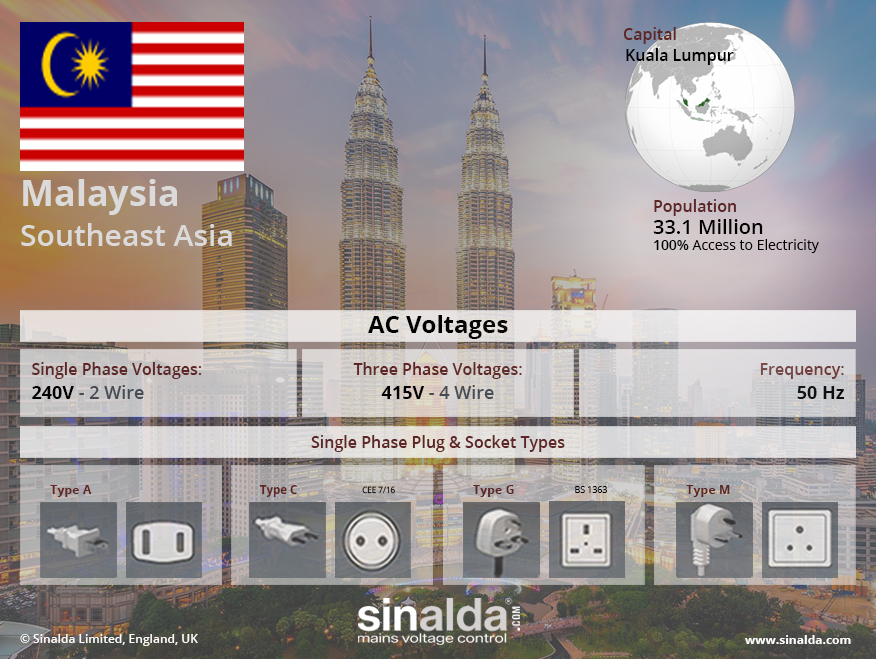Last Updated: 01 January 2023

Copyright 2021 Sinalda. Permission to use this image is granted subject to appropriate credit being given to www.sinalda.com as the source.
Power Quality in Malaysia
Malaysia’s electricity supply network is essential to the country’s economy, providing reliable power to households, businesses, and industries. The country’s electricity sector has undergone significant transformation in recent years, shifting towards a more diversified energy mix and adopting renewable energy sources. However, despite these developments, Malaysia’s electricity supply network still faces challenges in meeting the growing demand for electricity and ensuring the network’s reliability.
Power Sector in Malaysia
Malaysia’s electricity supply network is primarily owned and operated by Tenaga Nasional Berhad (TNB), the country’s largest utility company. The country’s primary sources of electricity generation are coal, gas, and hydro, with a growing share of renewable energy sources such as solar and wind power.
Despite Malaysia’s efforts to diversify its energy mix, the country’s electricity supply network faces several challenges. One of the main challenges is the growing demand for electricity, particularly in urban areas where population growth and economic development are driving increased energy consumption. Additionally, the country’s electricity sector faces financial challenges due to high levels of debt and the need to invest in new generation capacity and transmission infrastructure.
Reliability of the Network
Malaysia’s electricity supply network has a relatively high level of reliability compared to many other countries in the region. However, the network still faces challenges in providing reliable power to all parts of the country, particularly in rural areas with lower electrification rates.
TNB has taken steps to improve the reliability and resilience of the network, including investments in new power generation capacity and transmission infrastructure. The utility has also implemented initiatives to improve operational efficiency and reduce costs, such as adopting smart grid technologies and using renewable energy sources.
Investing in the Network
Malaysia’s government and utility companies are investing significantly in the country’s electricity sector to address the network’s challenges. These investments include constructing new power plants, expanding transmission and distribution infrastructure, and adopting new technologies such as smart grids and renewable energy sources.
Malaysia’s government has also implemented several initiatives to encourage the adoption of renewable energy sources and improve energy efficiency, such as the Feed-in Tariff (FiT) scheme and the Energy Performance Contracting (EPC) scheme.
Conclusion
In conclusion, Malaysia’s electricity supply network faces significant challenges in meeting the growing demand for electricity and ensuring the network’s reliability. However, the country is investing significantly in new generation capacity, transmission and distribution infrastructure, and renewable energy sources to address these challenges. As Malaysia continues to develop its electricity sector, it will be critical to focus on improving operational efficiency, reducing debt, and expanding access to electricity to support its economic growth and development.
Share your Views and Experiences
Every reasonable effort is made to ensure that the information provided above is accurate. No guarantees for the accuracy of the information is made.
So we are able to keep the content updated, and actual on the ground experiences can be shared with others, please feel free to contact us.







